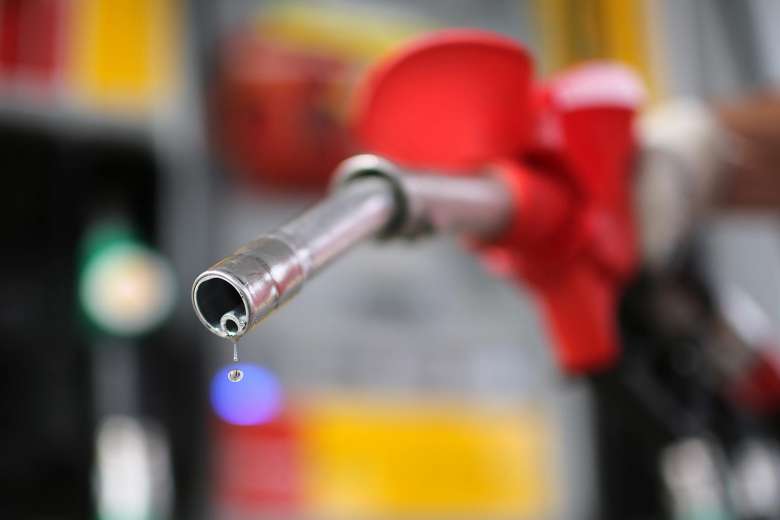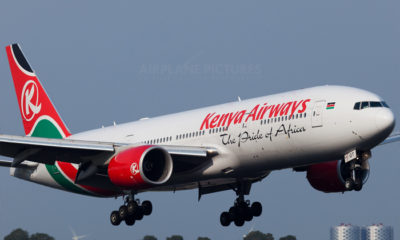Business
Marketers Seek N165 Petrol Price, FG Says No
Published
9 years agoon

Petroleum product marketers have demanded an upward review in the pump price of the Premium Motor Spirit (also known as petrol).
This, they said, would make importation of the product profitable.
They said the free fall of the naira against the dollar had made it unprofitable for them to import petrol and sell at the current rate of N145 per litre.
But the Federal Government said there was no immediate plan to raise the pricce of petrol.
This is coming nearly four months after the government increased petrol prices from N86 and N86.5 per litre to between N135 and N145 per litre.
Some marketers had early last month said Nigerians should prepare for another increase in petrol prices due to the continued scarcity of foreign exchange to finance the importation of the product.
According to a source close to the Major Oil Marketers Association of Nigeria, N165 is the pump price that will cover the cost of forex required for fuel importation.
The Petroleum Products Pricing Regulatory Agency had, in its template based on 30 days’ moving average Platts posted price for April 23 – May 23, 2016, put the landing cost and total cost of petrol at N122.03 and N140.40 per litre, respectively.
The costs of the product and freight, which are the elements mostly affected by the exchange rate, were put at $534 per metric tonne of petrol or N111.30 per litre, using an exchange rate of N280/dollar.
Using an exchange rate of N314.20/dollar at the interbank market on Monday, according to FMDQ OTC Securities Exchange, the cost of product plus freight was N125.12 and the total cost of petrol stood at N151.93 per litre.
With an exchange rate of N350/dollar, the cost of the product plus freight stood at N139.37; while the total cost amounted to N167.15 per litre.
The naira plunged to all-time low of 420/dollar on the black market last month.
An official of one of the marketers’ associations, who spoke on condition of anonymity to one of our correspondents, said, “Let the government do the needful. We have already said it before that the price is not sustainable. When they fixed that price, dollar was N280 – N285; now the dollar is almost N400 and they want us to bring in products and sell at N145. It is not possible.
“But right now, most of us are getting the product from the NNPC; that is why you still see that there is product everywhere. It is an indirect case of subsidy. It means the government is subsidising it through the NNPC and we are buying at local price. Had it been that we were the ones that sourced the foreign exchange, we can’t sell it at N145.”
The Head of Energy Research, Ecobank Capital, Mr. Dolapo Oni, noted that the current template was adopted when the dollar was about N315 in the parallel market and the naira had not been floated then.
He said then the CBN was still selling at about N220 or so and marketers were augmenting what they got from the CBN with the parallel market supply, adding, “Thus, a range of N275 to N295 was used to arrive at the template price range of N135 to N145.
“The official market is N310 this (Monday) morning while the parallel market is N422. This gives a range of between N151 and N200. I think they’ll probably adopt a range of N330 to N370 (per dollar) so we have a fuel price range of N160 to N170.
Oni added, “The best solution, in my view, however, will be to take the last plunge and just remove cap on prices. It is probably the best in this market. Let competition regulate prices.”
Another source, who is an official of one of the marketing companies in Lagos, said, “The position of the marketers is that if the guaranteed exchange rate of N285 to a dollar will not be met, selling at that N145 is not profitable. And that is the more reason most of the chief executives or finance directors are still going cap in hand to the NNPC to facilitate the forex they promised through international oil companies instead of going to the black market.
“With the current situation in the country, I don’t see the government increasing the pump price of petrol, although it is not profitable to marketers. It would have been very easy if forex is available to marketers at N285/dollar.”
On marketers’ reliance on the NNPC for petrol, the source said, “The advantage in depending on the NNPC product is that the price they give you is better and you are not subjected to any issue of forex. And it is not as difficult as before when you had to queue for a long time because the NNPC has the product.”
Officials from the Federal Ministry of Petroleum Resources and the PPPRA stated that it was difficult for marketers to buy forex at over N350/dollar and still sell the PMS at N145 per litre.
“There must be some form of subsidy somewhere, either from where they are getting the product or from the major importer of the PMS into Nigeria, because you cannot buy a dollar at N350 and still sell petrol at N145 if you want to remain in business,” a PPPRA official, who spoke to one of our correspondents in confidence, said.
But the Minister of State for Petroleum Resources, Dr. Ibe Kachikwu, and the Group Managing Director of the Nigerian National Petroleum Corporation, Dr. Maikanti Baru, said there was no immediate plan to increase the pump price of petrol.
Some former NNPC GMDs had last week said that due to the dollar scarcity and the falling naira, it would be unrealistic to expect the petrol price to remain the same.
However, Kachikwu and Baru, who met with President Muhammadu Buhari at the Presidential Villa, Abuja on Monday, said there would be no increase in the price of petrol.
Baru, when approached by reporters, declined to speak at length, referring journalists to the PPPRA.
Asked if there would be a review of the price, he said, “There is nothing like that.”
When Kachikwu was approached for comment, he revealed that there was no memo before the Federal Government asking for a review of the price.
Ex-NNPC GMDs had made the suggestion of fuel hike at a one-day meeting called by Baru, where they argued that the ýcurrent price cap of N145 per litre is not in line with the liberalisation policy especially with the foreign exchange rate and other price determining components such as crude cost, Nigerian Ports Authority charges, among others, remaining uncapped.
In a related development, the Chairman, Senate Committee on Media and Public Affairs, Senator Sabi Abdullahi, on Monday asked Nigerians to hold former GMDs of the NNPC responsible for the non-functional state of the country’s refineries and the non-profitability of the NNPC.
Sabi, who stated that he was not making his submission as the spokesman for the Senate but as the Senator representing Niger-North Senatorial District, in a chat with journalists in his office, said he was very disappointed with the recent comments credited to the ex-GMDs on fuel price.
He said, “As we have all known, refineries that we have in Nigeria have not been functional because if they had been functional and if that institution had been up and doing in tandem with its peers in other countries that have similar resources, for crying out loud, all of these former GMDs, can they be said to be free of blame on how we got here? Can they?
The Senator lamented that the refineries had failed to perform maximally under the military rule and the 16 years of Peoples Democratic Party’s administration.
Abdullahi said, “I think on this note, let me make it very clear that all of them that are speaking, they do not have the moral standpoint to even advise us on what to do because they had a hand in it (the problem) and I cannot see how you can solve a problem under the same condition that created it.”
Is the CEO and Founder of Investors King Limited. He is a seasoned foreign exchange research analyst and a published author on Yahoo Finance, Business Insider, Nasdaq, Entrepreneur.com, Investorplace, and other prominent platforms. With over two decades of experience in global financial markets, Olukoya is well-recognized in the industry.

You may like
-
Trump’s 14% Tariff on Nigerian Imports Raises Fresh Concerns for Trade and Economic Stability
-
Nigeria Secures $1.08 Billion World Bank Support to Boost Education and Combat Malnutrition
-
Trump Declares Economic Emergency Introduces Tariffs on Nigerian Exports
-
Nigeria, Brazil Partner on $1.1bn Agricultural Revolution Plan
-
Nigeria Considers Creation of 31 New States Despite Economic Challenges
-
Visa Denial Sparks Airport Drama as Kenya Airways Defends Staff













